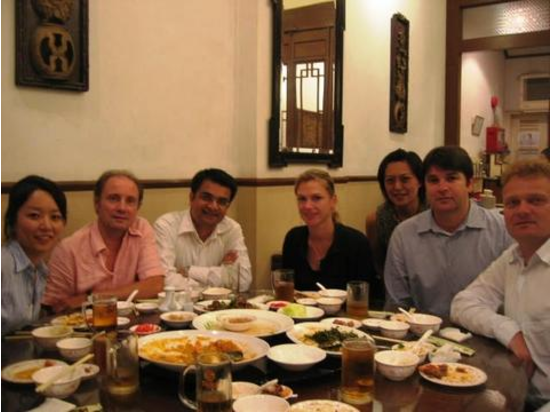Cross-Cultural Experience(3)Diversities--by Yumiko Fujita
2010/7/19

I had studied in the US for 2 years, worked for a Dutch company for 16 years, and lived in Singapore for 7 years. I have seen and touched a lot of differences. Although the world cannot be described by experience in only by 3 countries, I can see the generic characteristics of each of them.
As to my impression, in the US, people from different backgrounds try to be united by being ‘American’. They are rather all ‘Americans’ regardless their ethnic background. Thus, I can feel America is a ‘melting’ pot – it is one group of people being blended by being united under the idea of being ‘American’.
Meanwhile, in South East Asia, people from different backgrounds are united but still tend to maintain their own ethnic group identity; they ‘co-exist’ with one another. Values of ethnic groups are extremely strong. Differences are never ‘melted’ together. They exist harmoniously in the same place but still with maintain their own domains. Thus, I think South East Asia is a “Salad Bowl”. One thing I feel unique is, Singaporeans who are of Chinese descent and have Singapore passports call themselves ‘Singaporean Chinese’, not ‘Chinese Singaporean’.
Europeans are really individual, I feel. They are individually ‘individual’, not belonging to a country or area, but an aggregation of individuals in physically separated locations. They are neither a melting pot nor a salad bowl. But needless to say, they are proud of their own countries.
When talking about ‘Diversity’, I would highly recommend going to South East Asia if you would like to acquire the sense of it. You may not even realize that you are in the middle of diversities because it is such usual thing to live together with differences in everything everyday life.
At work, Muslim colleagues take a break to pray during an office hours. Even a meeting may be interrupted for a while. What would you think about that and how would you manage such a situation?
In Japan, I am sure that some people would say, ‘why do all of us need to interrupt an important meeting for one person’s needs?’, ‘I will try not to hire the people who need to take a break during the office hours.’, ‘I would ask the person to cooperate with others and shift their prayers to another time.’ This way tries to solve the problems by excluding the cause of difference and tries to make everything the same. Perhaps by trying to explain the value of having common standards amongst members of the same team, meetings can be scheduled apart from these prayer hours-- why not take the break as a real break to relax; maybe arrange the agenda so as not to make any interruption. Why can’t ‘many people’ accommodate ‘one person’ – what’s wrong with that?
I am sure that respecting the different backgrounds and situations that each individual holds is the key to success in a diversified society.

